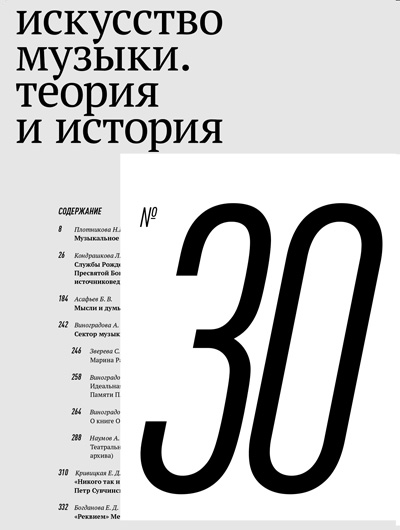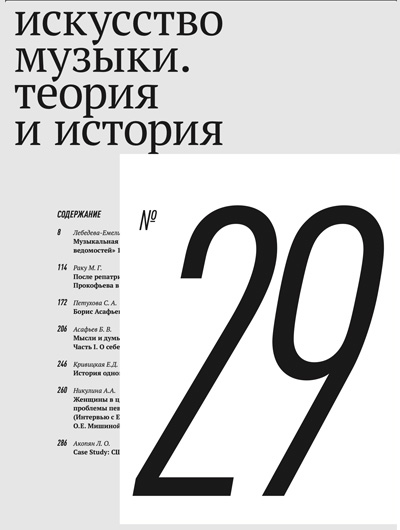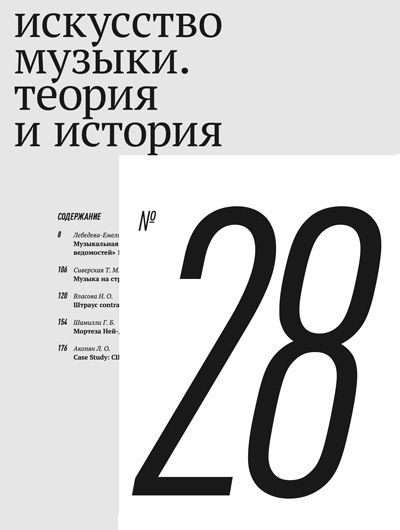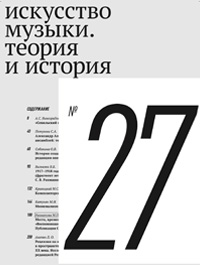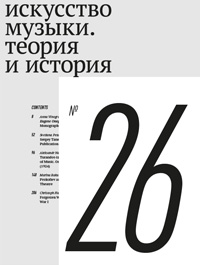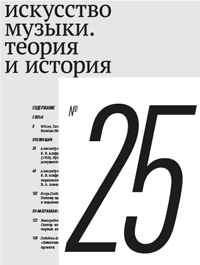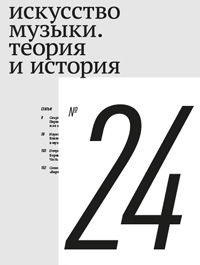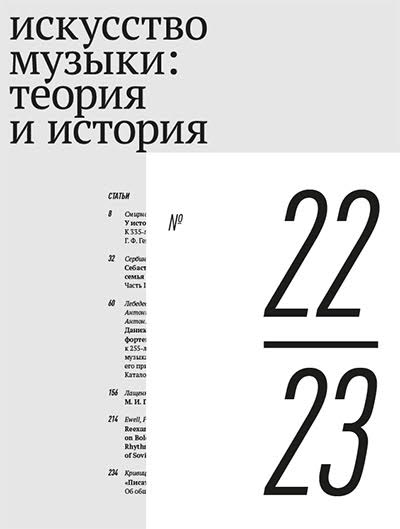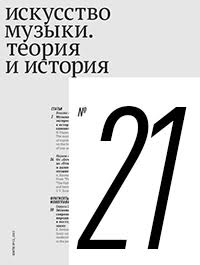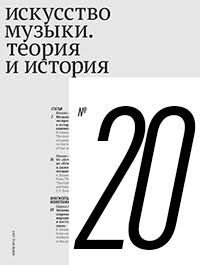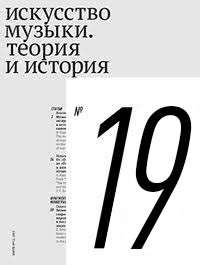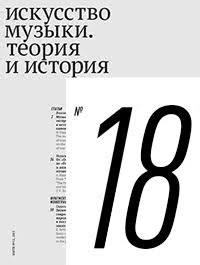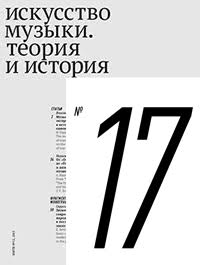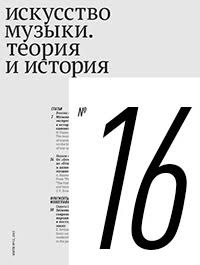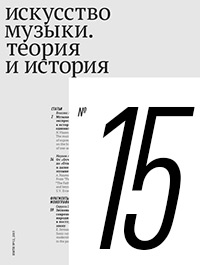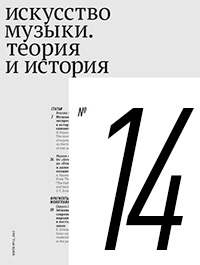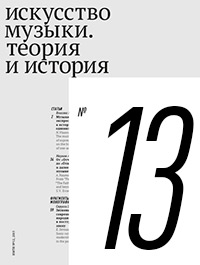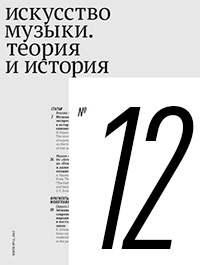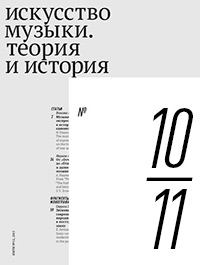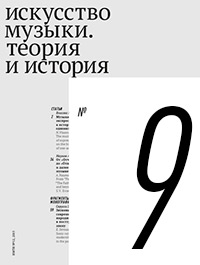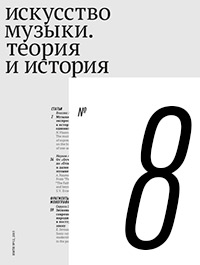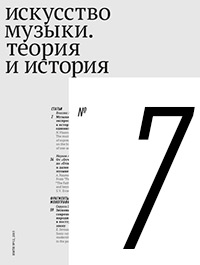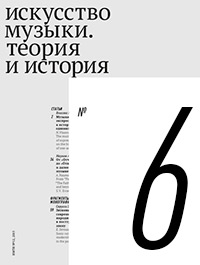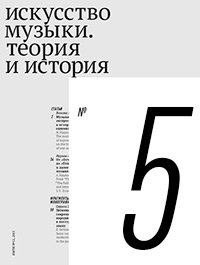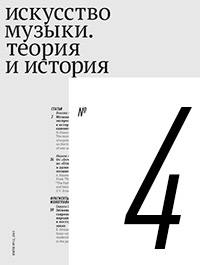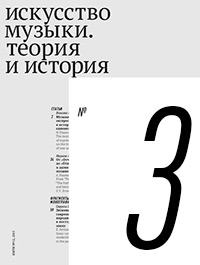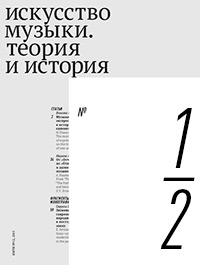2012 ¹ 3
The present issue contains articles dealing with various phenomena of European and Russian music and musical culture from the 16th up to the 20th century. Due to studies in music history, theory and sociology forgotten names, facts and works have been returned in the focus of scholarly interest. As in the previous issue, some of the texts include sounding illustrations.
Beginning with this issue, the journal has been enlarged with two new rubrics: Publications and Reviews.
The materials and the information about the events of musical life have to be sent to the following address: imtijournal@gmail.com
L.H. Hakobian (Akopian), S.K. Lashchenko, M.G. Raku
The journal is published with the consent of the Scientific Council of the State Institute for Art Studies
Postcomposition – the transformation of a musical text created earlier – was widespread in the performing (often improvisatory) practice of the 16th century and refers to the cantus-type creative method peculiar to the medieval and Renaissance culture in general. However, the 16th century practice shows that a new type of composition was germinating within it, which reflected changes in the worldview and the individual’s self-identification in the spirit of Modern Age. This article demonstrates how the unauthored, commenting type of creativity develops into the author’s one, and a rough text intended for arrangement turns into a finished author’s opus. A whole cultural layer originated at that transitional period, which has not been adequately elucidated by musical historians so far.
All Renaissance musical ranks contributed to the oncoming cultural change: performers (both professional and amateur), publishers and compilers who issued collections of music transcriptions, composers and, finally, the emerging community of music lovers who determined the aesthetic tastes of the time and showed the way to the New Music.
The postcompositional transformation of a musical work has become an actual creative method in our time, though with an opposite trend: from the author’s opus to interpretation, to a commentary on the chosen finished text.
The article discusses the principal stylistic features of Telemann’s theatre works on the example of his comic operas.
The name of Bernhard Pollini, who was one of the most influential and famous figures of the late 19th century theatre, is not common in reference and professional literature on music and theatre. However, it was he who for a quarter of a century directed the musical and theatrical life of Hamburg – one of the largest cultural centres of Europe. Besides, he was one of the earliest advocates of Russian music in Germany. This is the first attempt to reconstruct the history of his relationships with Tchaikovsky. The study is based on Pollini’s unpublished correspondence from the Klin archives. A study of foreign musical periodicals of the time helped to supplement Pollini’s biography and to outline some new hypotheses.
The article analyzes Rakhmaninov’s interaction with the American gramophone recording industry. The development of recording in the 20th century and its importance for musicians and composers are discussed.
This is the first Russian biography of the French composer, Messiaen’s pupil Jean Barraqué (1928–1973). A devotee of serial technique and pointillism, he strived to resolve but the most complex creative tasks and, having Beethoven as a benchmark, worked only in large monumental forms. His mature legacy consists of six finished scores; three of them were inspired by Hermann Broch’s philosophical novel The Death of Virgil. The article is a part of the author’s large research project dedicated to marginal figures of the 20th century music.
The article presents the theory of musical syntax elaborated by the outstanding Russian musicologist M.G. Aranovsky (1928–2009). In spite of the theory’s merits, it has not been in demand in the Moscow Conservatoire teaching practice; the reasons for this are discussed.
